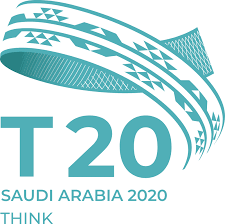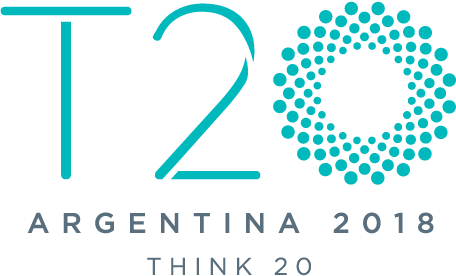Final Communiqué
Policy Briefs
- Access to education during public health emergencies: keep schools open
- Beyond the tyranny of the urgent: long-term systemic and intersectoral reforms on gender-related health barriers in Covid-19 recovery
- Boosting equitable access and production of diagnostics, therapeutics and vaccines to confront Covid-19 on a global footing
- Culture and science for life: towards a global health literacy alliance for a sustainable future
- From pathogens to people: enhancing reporting and surveillance for more effective control of disease outbreaks
- Global equity for global health
- Health systems: strengthening preparadness
- One health-based conceptual frameworks for comprehensive and coordinated prevention and preparedness plans addressing global health threats
- Regional collective action to address Covid-19 and prepare for future pandemics
- Accelerating youth-led transformative actions through ICT-enabled education for sustainable development
- Avoiding a carbon trade war: G20 dialogue and coordination and the European Carbon Border Adjustment Mechanism (CBAM)
- Clean-IT: policies to support sustainable digital technologies
- Climate change, food security and central banks in developing economies
- Designing recovery packages to be consistent with low-carbon transitions
- Fixing financial, economic and governance structures to save forests and the ocean, and enhance their contributions to climate change solutions
- International cooperation to accelerate the development and deployment of the circular carbon economy
- International coordination and policy instruments to promote a hydrogen economy: a focus on the steel-making industry
- Localising the circular economy imperative in a post-Covid-19 era: place, trade and multilateralism
- Nature-based solutions for climate change, clean energy & health
- Plastics in a circular carbon economy
- Policy direction for sustainable communities and combating energy poverty
- Promoting energy efficiency financing within the G20: the role of fiscal instruments
- Promoting sustainable agriculture in smart cities
- Repurposing agricultural policy support for climate change mitigation and adaptation
- Resetting low carbon green growth policies through stimulus packages in the aftermath of the Covid-19 pandemic
- Agricultural trade in a post-pandemic world
- Boosting G20 cooperation for WTO reform: leveraging the full potential of plurilateral initiatives
- Confronting “Deglobalization” in the multilateral trading system
- Digital trade: tp trade negotiation priorities for cross-border data flows and online trade in services
- Domestic distortions through industrial subsidies: reframing the G20’s potential perspective
- Facilitating sustainable investment to build back better
- Investment screening: protectionism and industrial policy? Or justified policy tool to protect national security?
- Leveraging digital FDI for capacity and competitiveness: how to be smart
- Leveraging global digital trade opportunities for all
- MSMES’ access to global value chains and trade finance
- Multilateral coordination and exchange for sustainable global value chains
- Restructuring the WTO regulatory framework on industrial subsidies: sustainability, free trade and prosperity
- Trade and development in the WTO: toward a constructive approach to the issue of development and special differential treatment
- A global governance framework for digital technologies
- Actions to make “data free flow with trust” operational in practice
- Digital inclusion strategies for the G20 – Lessons in public-private cooperation from India and Africa
- Digital learning for every child: closing the gaps for an inclusive and prosperous future
- Enhancing food supply chain resilience through the utilisation of digital and sequence information technologies
- Exploring the development-technology nexus via a digital transformation paradigm shift in development strategy in the digital age
- Homebased platform work and women’s labour force participation in a post-covid world
- Human-centric AI: from principles to actionable and shared policies
- Implementing humanistic digital governance
- Legal regulation of the platform economy
- Levelling the data playing field the g20 ex-ante regulatory approach to platforms with strategic market status
- Opportunities for international cooperation on digital health – Lessons from the European Union
- Promoting global financial resilience against cyber threats through an operational collaboration model
- Sifting truth from fiction: enhanced protection from fake news
- Sustech solutions: enabling new technologies to drive sustainable development
- A more sustainable and resilient agri-food sector to better deal with the pandemic
- A multidimensional approach to poverty that strengthens the humanitarian-development nexus
- Aligning Covid-19 recovery efforts with the SDGs – Toolbox and principles
- Availing existing frameworks to enable a clean and sustainable transition in the transport sector
- Creative economy 2030: inclusive and resilient creative economy for sustainable development and recovery
- Debt relief for a sustainable recovery in low- and middle- income countries: proposal for new funding mechanism to complement the DSSI
- ESG20: standardisation to foster public-private collaboration towards the 2030 Agenda
- Involving higher education(SDG4) in achieving sustainable cities and communities (SDG11) through problem-solving and learning-by-doing practices towards the 2030 Agenda
- Repurposing agricultural policy support for climate change mitigation and adaptation
- Science, technology and innovation for SDGs post-pandemic: strengthening technology facilitation mechanism and global public goods for low- and middle-income countries
- SDG16: an enabler for accelerated implementation of the 2030 Agenda amid Covid-19
- Supporting SMEs in sustainable strategy development post Covid-19: challenges and policy agenda for the g20
- The economic empowerment of women entrepreneurs in a post-Covid world
- A wealth taxation on corporations’ stock
- Beyond Covid-19: what can countries do to address the learning loss caused by the pandemic?
- Building global citizenship through a global citizen income and progressive global taxation
- Can trade enhance labour market access and job opportunities for women? The inhibitive roles of entrenched gender inequality
- Covid-19 and inequality: an integrated policy response for skills, employment and welfare
- Financial inclusion: the importance of financial literacy and the promotion of better labour market outcomes for women and youth
- How do we know goals are achieved?
- Rebuilding education systems for recovery – A crisis-sensitive and equity focused approach
- Remote working, housing inequality and social mobility
- Towards humanistic metrics of success for G20 economies
- A compass for global recovery: integrating environmental criteria into infrastructure investment
- A new vision for Infratech: governance and value network integration through federated data spaces and advanced infrastructure services for a resilient and sustainable future
- A regional connectivity partnership for the Mediterranean
- Building a new sustainable economy. Investing in Infrastructure for distribution and well-being
- Digitally-enhanced infrastructures: a three-dimensional approach
- G20 support for improved infrastructure project cycles in Africa
- How quality infrastructure can bring private sector finance into infrastructure investment to recover from the Covid-19 crisis
- Local government of infrastructure financing to promote sustainable and inclusive cities
- Maintaining resilient infrastructure systems
- Risk mitigation tools to crowd in private investment in green technologies
- Subnational government infrastructure financing for caron neutrality
- Success path for resilient cities
- Sustainable and quality infrastructure beyond the covid-19 pandemic: proposals for new financing models
- A G20 tech diplomacy
- A transformative gender approach to fighting corruption in low- and middle-income countries
- An open, flexible and “fit-for-purpose” multilateralism
- Building a more inclusive, people-centred multilateralism
- Cryptocurrencies and State Power: harnessing the benefits of DLT through multilateralism
- Deepening G20-UN system cooperation to foster socio-economic recovery from the pandemic and reduce inequality worldwide: towards a G20+
- Diplomacy and interferences in social media: contrasting disinformation and protecting multilateralism
- G20 Global Annual Risk Report
- Global legal standards: pathways to reorganise globalisation
- How to systematise G20 engagement with African multilateralism
- Identifying ultimate beneficial owners: a risk-based approach to improving the transparency of international financial flows
- Strengthening multilateralism and multi-stakeholder partnerships in international development cooperation
- A world recovery fund to overcome developing countries post-Covid debt woes?
- Addressing governance in the Token Economy
- Countercyclical sovereign financing mechanism for EM economies post Covid-19 recovery: opportunities for multilateral action by the G20
- Covid-19: how can the G20 address debt distress in SSA?
- Ensuring ESG impact: four actionable recommendations for a dependable path
- Exiting the Covid global recession: policy proposals
- Global framework for regulating state-owned multilateral enterprises (SOMNES)
- International standards and the role of central banks in global financial governance
- Mitigating and managing the effects of climate change on macro-financial stability and sovereign risk
- Policies for managing a wave of sovereign debt crises
- Resetting the global financial safety net for the Covid-19 recovery
- Strengthening the global financial safety net by broadening systematic access to temporary foreign liquidity
- The emergence of new monies and the need to prepare the financial system for the digital age
- The need for a development-centred climate change policy at the International Monetary Fund
- Using risk securitization to ensure against pandemic-related risk
- Access to education for migrant and displaced students in the context of the Covid-19 pandemic: challenges and good practices for reducing inequality
- Developmental social protection for refugees in the aftermath of Covid-19
- Environment, migration and urbanisation: challenges and solutions for low- and middle-income countries
- Human mobility: towards enhanced integration and social cohesion
- Post-pandemic economic recovery in developing countries: the return migrant community as a driving force
- Promoting economic social inclusion of migrant workers
- Reducing vulnerability and precarity of low-skilled women in short-term migration from the Global South: key policy recommendations for the G20
- Supporting diasporas during and after Covid-19. improved roles for global, regional and local governance
- Towards a triple win: transforming circular migration into circular skills mobility schemes
- Vaccinations for migrants and refugees during and after Covid-19
Discover the Policy Briefs of previous Think20s:
Think20 Saudi Arabia
Policy Briefs
Think20 Japan
Policy Briefs
Think20 Argentina
Policy Briefs


